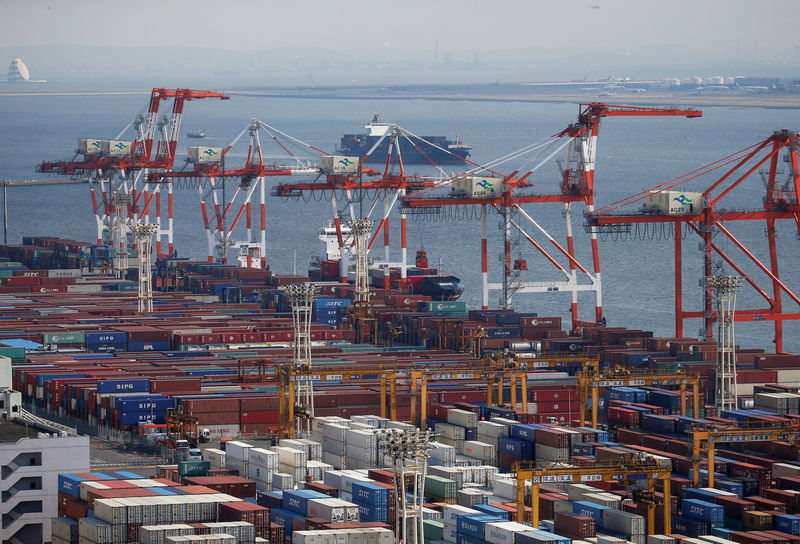By Minami Funakoshi
TOKYO (Reuters) - Japan's current account surplus stood at 2.81 trillion yen ($25.26 billion) in February, finance ministry data showed on Monday, the biggest surplus since March 2016.
The result, the 32nd straight month of current account surpluses, compares with economists' median forecast for a surplus of 2.62 trillion yen in a Reuters poll. This February's current account surplus was the largest on record for February.
The surplus reflected the trade balance rising as exports picked up pace after a Lunar New Year slowdown. The trade balance stood at 1.08 trillion yen in February, rebounding from a deficit of 853.4 billion yen the previous month.
Trade surpluses and currency valuations are in focus as U.S. President Donald Trump pursues an "America First" campaign in which he has accused big exporters such China, Germany and Japan of deliberately weakening their currencies to gain a competitive advantage.
U.S. Vice President Mike Pence and Japanese Deputy Prime Minister Taro Aso will hold their first round of economic talks in Tokyo next week to discuss issues ranging from macroeconomic policy, infrastructure investment and trade.
Nonetheless, in what appears to be a shift in emphasis, the Trump administration is touting a new term, "currency misalignment," because it is seen as more significant than "manipulation" as a cause of trade deficits.
Income from overseas investment also helped boost the current account balance. The primary income account in February was 1.98 trillion yen, up from 1.27 trillion yen the previous month.
"It’s difficult to explain this month's current account surplus with just the (effects from) Lunar New Year," said Hidenobu Tokuda, senior economist at Mizuho Research Institute.

"The income account is rising, too. There is upward pressure on current account balance."